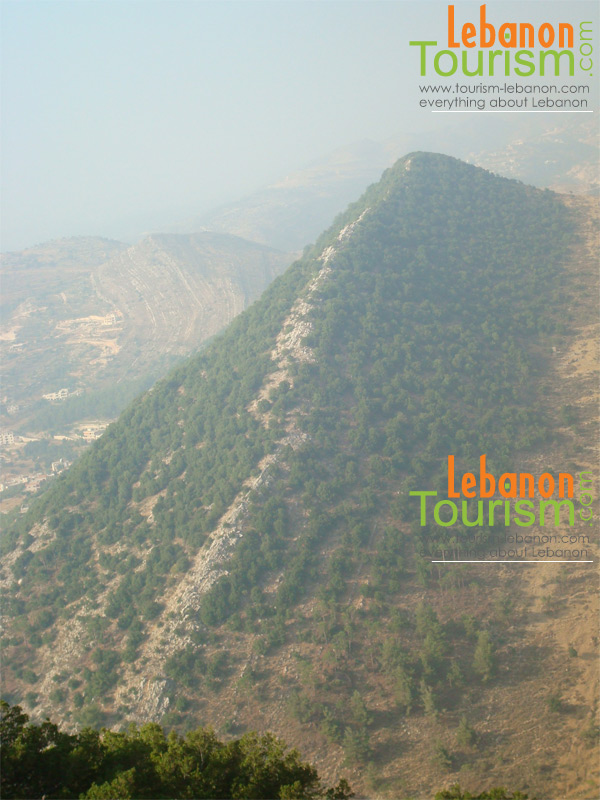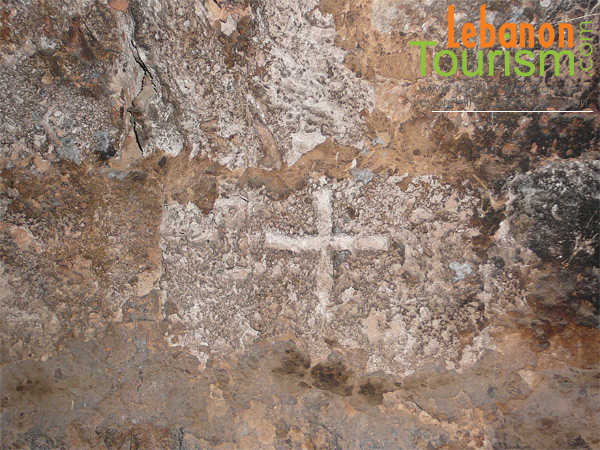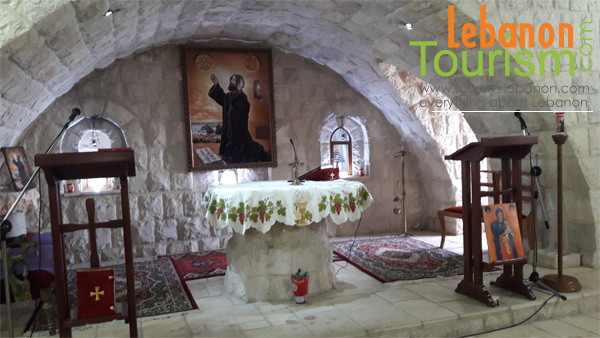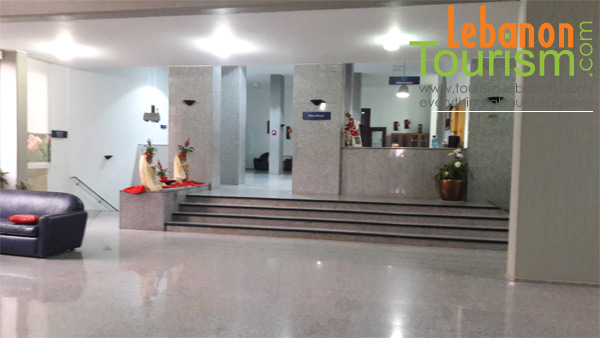

: GUIDE INFO :
- About Us
- Contact Us
- Social Media
- F.A.Q
- Plans
- Albums
- News & Events
- Get A Website
- Marketing Tips
- Useful Links
- International Links
: HOTELS DIRECTORY :
- Beirut Hotels
- Bekaa Hotels
- Mount Lebanon Hotels
- North Lebanon Hotels
- South Lebanon Hotels
: LEBANON INFO :
- Transportation In Lebanon
- Touristic Sites
- Featured Resorts
- Resorts>
- Grottos
- Embassies in Lebanon
- Photo Gallery
- Articles About Lebanon
- Songs About Lebanon
: SISTER SITES :
- AtLebanon Directory
- Advertise Lebanon
- Professional Innovations
- Lebanon Auto Guide
- Bcharre Chalet & Motel
: GOOGLE ADS :
|
» RELIGIOUS TOURISM
 Makam al nabi Ayoub - Prophet Ayoub's shrine, Niha, Lebanon
Makam al nabi Ayoub - Prophet Ayoub's shrine, Niha, Lebanon
Makam al nabi Ayoub - Prophet Ayoub's shrine, Niha, Lebanon
Makam al nabi Ayoub - Prophet Ayoub's shrine, Niha, Lebanon
 The Holy Valley - Quadisha Valley
The Qadisha valley is one of the most important early Christian monastic settlements in the world. Its monasteries, many of which are of a great age, stand in dramatic positions in a rugged landscape. Nearby are the remains of the great forest of cedars of Lebanon, highly prized in antiquity for the construction of great religious buildings.
The Holy Valley - Quadisha Valley
The Qadisha valley is one of the most important early Christian monastic settlements in the world. Its monasteries, many of which are of a great age, stand in dramatic positions in a rugged landscape. Nearby are the remains of the great forest of cedars of Lebanon, highly prized in antiquity for the construction of great religious buildings.For more information, please visit Unesco's page:
Ouadi Qadisha  The monastery of Saint Anthony, Qozhaya
The Monastery of Saint Anthony the Great (Mar Antonios al-Kabir) is situated at a height of 950 meters above sea level in the celebrated Valley of Qozhaya, " the Living Treasure ", in the Zghorta district of North Lebanon.
The monastery of Saint Anthony, Qozhaya
The Monastery of Saint Anthony the Great (Mar Antonios al-Kabir) is situated at a height of 950 meters above sea level in the celebrated Valley of Qozhaya, " the Living Treasure ", in the Zghorta district of North Lebanon. The pine trees and oak trees cover the great hills surrounding it. Fruit trees of every description grow all along the valley which extends into the Valley of Qannubin to form the great Qadisha Valley, thus bearing witness to the history of eremitic life and the quest for holiness in Lebanon.
Historians and scholars suppose that this Monastery was first built and began to be occupied by hermits at the beginning of the fourth century. It was several times looted, set on fire and razed to the ground, but there still remain vestiges dating back to the seventh century.  Hamatoura, The holy mountain of the theotokos
In Serianit, Kosba means the hidden, probably due to its wonderful location hidden among the pine trees.
Hamatoura, The holy mountain of the theotokos
In Serianit, Kosba means the hidden, probably due to its wonderful location hidden among the pine trees. In the book : The names of the Lebanese Villages, narrated by Dr. Anis Freyha, Kosba meant the money and gold. In Arabic, Kosba means the winner. It is situated on a bottom of a mountain near KADISHA river, on an average height of 430m above sea level. It is one of the most inhabitant village in Koura area, 18 km south from Tripoli, 12 km east of Chekka, and well seated on the main Highway towards Becharry. It consists of 601 Hectare of lands, including lots of historical monuments, touristic and religious sites, teaching institutions, sport clubs, churches and monasteries, and social clubs. For More Info Visit Hamatoura Official Website: www.Hamatoura.com  Hardine - The village of the St. Nimatullah Youssef Kassab Al-Hardini
Saint Nimatullah Kassab, O.L.M., (1808 – 14 December 1858) was a Lebanese monk, priest and scholar of the Maronite Church. He has been declared a saint by the Catholic Church.
Hardine - The village of the St. Nimatullah Youssef Kassab Al-Hardini
Saint Nimatullah Kassab, O.L.M., (1808 – 14 December 1858) was a Lebanese monk, priest and scholar of the Maronite Church. He has been declared a saint by the Catholic Church.He was born Youssef Kassab, in 1808 in the village of Hardine, in the North Governorate of Lebanon, one of the seven children of George Kassab and Marium Raad, the daughter of a priest of the Maronite Church. As a boy, Youssef attended the school run by the monks of the Lebanese Maronite Order at the Monastery of St. Anthony in the village of Houb. After he finished his studies there in 1822, he entered the Monastery of St. Anthony in Qozhaya, entering thenovitiate of the Order which had taught him in November 1828, at which time he took the monastic name of Nimatullah, by which he is now known. For more information, please visit wikipedia page  Congregation of the Maronite sisters of the Holy Family - Ibrine
Building the Mother House
Congregation of the Maronite sisters of the Holy Family - Ibrine
Building the Mother HouseThe basic objective of Mother Stéphanie was to build the mother house. The decision was taken at once, with the new construction to be built over the blood of the Founding Martyr. Mother Stéphanie, herself, directed the labor force and the works. The first stone of the chapel was laid in 1907.
The Founder consecrated it in 1913 and the work was completed by 1917. The convent doors were wide open to accept young girls, according to the main aim, for which the Congregation had been founded. Mother Stéphanie built a school as well as a boarding home.Fortified by the blood of the Founding Martyr, the unshakable faith and iron will of its co-founder, the nascent Congregation developed and expanded with astonishing rapidity, to become a very huge tree where birds have come to nest, from having been a mustard seed, as the Founder witnessed himself.   Saydet El Jabal
A place for Spiritual retreat.
Saydet El Jabal
A place for Spiritual retreat.Services: Spiritual retreat, conference rooms and an amphitheater.
 Saydet El Nouriyeh
Our Lady of Nourieh, Saydet el Nourieh in Arabic, is a Marian shrine in Hamat, Lebanon.
Saydet El Nouriyeh
Our Lady of Nourieh, Saydet el Nourieh in Arabic, is a Marian shrine in Hamat, Lebanon. Nourieh is a derivative of the Arabic word, nour, meaning light. Thus, in English, the Marian shrine can be called, Our Lady of Light. The story of Our Lady of Light shrine and monastery is celebrated throughout Lebanon, a country where Christianity has existed since Jesus first evangelized in Tyre and Sidon, and therefore, Lebanon is often considered part of the "Holy Land." Some of the first Christian communities were set up in Lebanon during the time of the apostles.It is believed that two sailors built the shrine in the 4th century. One winter night, on a very stormy sea, the two sailors found themselves in peril. They began praying, and the Virgin appeared to them as a light and guided them gently to the shore of Theoprosopon near modern day Chekka in North Lebanon. The grateful sailors carved a cave in the cliff and dedicated it to the Virgin Mary, and called the shrine, Our Lady of Light. A Greek Orthodox monastery was built in the 17th century. The miraculous icon of theTheotokos has been venerated for centuries for having glowed with light to attract wayward ships.The shrine is a popular Christian pilgrimage site in Lebanon, and tourists and pilgrims alike enjoy the beautiful view of the bay from atop historic Cape Theoprosopon. For more info Our Lady of Nourieh on wikipedia.
|
|










 Lebanon Auto Guide
Post,Buy your car.
Lebanon Auto Guide
Post,Buy your car.
 Chalets & Loding Rooms
One of Besharry/Al-Arz Tourists Destination
Chalets & Loding Rooms
One of Besharry/Al-Arz Tourists Destination